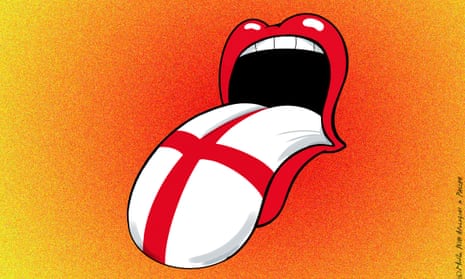In my innocence, I didn’t expect many people to be in a central Portsmouth Wetherspoons at 10.30am on a Friday morning. But there they all were, in their droves: passionate supporters of Brexit, there to hear the pub chain’s founder and chairman, Tim Martin, make the case for Britain leaving the EU with no deal. Martin has been on the road since November, with the aim of visiting at least 100 of his boozers. The day we crossed paths, he was traversing the south coast, moving on to Southampton and Weymouth: given that it has whetted the appetite of what remains of the country’s local press, drawn large crowds and shifted huge amounts of food and drink, the whole thing looks to have been an unlikely success.
Martin’s case was unconvincing to the point of tedium: a half-argument that ignored what a no-deal Brexit would mean for British exports, and too blithely dismissed all those concerns about supply chains, and chaos at UK ports, let alone what a no-deal scenario would mean for the island of Ireland. But on the level of political sociology, the spectacle presented was compelling: the hardest of the Brexit hardcore, many of them on the pints and riled to snapping point before the speech even got going, and then taken into incandescence by the posse of local Liberal Democrats interrupting Martin’s speech at every turn.
It is quite an experience, watching people repeatedly yell at each other about trade tariffs before they have had their lunch. Even after Martin had put down his microphone, a fierce debate continued. Meanwhile, very familiar mutterings punctuated the argy-bargy, and took the argument out of the realms of politics, into a mish-mash of culture and history: the second world war, the supposedly perfidious Germans, the idea that if we prospered before 1972, why can we not do so again?
Last Thursday, the BBC’s Question Time was broadcast from Derby, where an endorsement for no deal from the writer Isabel Oakeshott triggered mass whoops and cheers, and yet another explosion of Brexit noise on Twitter. The truth that brief moment underlined is obvious: whatever the warnings from politicians, many people currently support the nightmarish prospect of the UK leaving the EU without any formal agreement.
The extent to which that belief is a matter of deep conviction is a moot point: I wrote about Brexit boredom last week, and it seems pretty clear that many people say they would opt for no deal if pushed, but do so in the midst of disconnection and bafflement. Nonetheless, an inconvenient truth remains. Whereas I have never heard any member of the public make the case for what politicians call Norway plus, and belief in a second referendum still seems to be largely the preserve of a certain kind of middle-class person, no deal is the position that scores of people have recently expressed to me without prompting: “We should just get out”; “We have to leave, now”; “Why can’t we just walk away?”

At its heart, I suppose, is a terrible logic, combined with a certain stubborn ignorance, which results in an insistence that the only thing that matches what millions of people thought they were voting for in 2016 is a clean break. Some support for no deal closely echoes the specious stuff repeatedly uttered by leading Brexiteers, about the EU needing Britain more than we need them, a country set free from Brussels diktats and trading again with its former colonies. But the most fascinating element of popular no-dealism is altogether more complicated, and built on a defiant rejection of all the warnings about falling off a cliff edge, so passionate that the refusal of advice feels more relevant to what people think than what the most reckless kind of Brexit actually might entail. In that sense, supporting no deal amounts to the same performative “fuck you” that defined a reasonable share of the original vote for leave.
The gender aspect of Brexit is still too overlooked. Of the people gathered in that Wetherspoons, 90% were men. In a recent YouGov poll, support for no deal was put at 22%, but whereas 28% of men were no-dealers, among women the figure was a paltry 16%. There is something at play here similar to the belligerent masculinity channelled by Donald Trump: a yearning for all-or-nothing politics, enemies and endless confrontation, and an aggressive nostalgia. Some of the latter is shamelessly misogynistic, part of a macho bigotry that harks back to hierarchies of privilege that linger on, and blurs into racism. But there is also an element that ought to attract empathy: a yearning for a world in which men were steelworkers, coalminers and welders, and a desperate quest for something – anything – that might allow their successors to do the same.
More widely, the politics of no deal betrays an urge for drama and crisis that a lot of us ought to be humble enough to recognise in ourselves. Not that long ago, a high-profile supporter of Jeremy Corbyn looked ahead to the new Labour Party taking power, and wondered: “Have we prepared the people who chanted for Jeremy at Glastonbury for the fact that, at some stage, they may only be able to withdraw 50 quid a day if the credit runs dry? If there is a very British coup, will they hold the streets?” A comparable romanticism surrounds the idea of a besieged post-Brexit Britain nobly trying to make its way without the interference of Brussels. It is, perhaps, one of the great failings of mainstream politics that it has been unable to project anything similar on to issues that cry out for public attention: imagine, for example, if people were as worked up about climate change.
Finally, there are questions about no-dealism that are bound up with England, and national traits that go back centuries. One is a tendency to indulge in futile, inexplicable gestures, evident in everything from 18th-century riots to 1970s punk rock, and perfectly summed up in a sentiment mewled by a young man named Johnny Rotten, in the midst of a hit single titled Anarchy in the UK: “Don’t know what I want, but I know how to get it.” These things explode from time to time, but what never seems to go away is the self-image of an island nation, the seductive myth of Britain standing alone, and an eternally mistrustful attitude to the EU, now intensified by the bloodless functionaries – Tusk, Barnier, Juncker – apparently calling the shots on Brexit.
At the moment, mainstream politics operates on the understanding that if no deal came to pass, queues of lorries and thinly stocked shops would spark no end of public outrage, and cause huge political damage to the Conservative party. But if the current procedural complexities surrounding Brexit eventually give way to much starker realities of what the EU calls a “disorderly withdrawal”, I would not be so sure. Somewhere between the Wetherspoons spirit, a mass desire to simply get Brexit over with and the mirage of a wronged country fighting for survival, there might lie the key to why no-dealism is suddenly proving more popular than some people would like to imagine. A no-deal exit would confirm that politics has entered the realms of the darkly surreal, and that 23 June 2016 was only the start.

